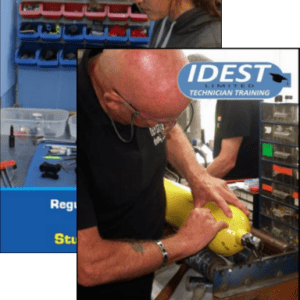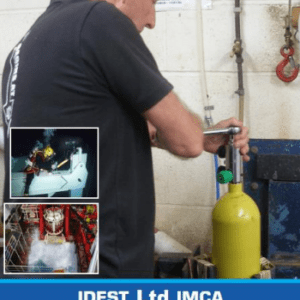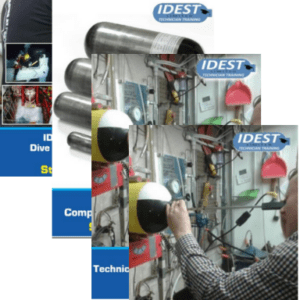IDEST Hydrostatic Cylinder Inspection Course
£250.00
This course has been developed for IDEST Test Centre staff, who have already attended an IDEST Technician Inspection Course Part 1. The training course extends their knowledge to include methods of hydrostatically testing diving and breathing gas cylinders.
Scope
The course is for technicians, who want to provide a cylinder testing service to their customers. The course content will provide them with sufficient knowledge and practical skills to test cylinders. This is covered by BS EN 1968:2002 and BS EN 1902:2002 – Inspection and testing of cylinders
Aim of the course
At the end of this short course the student will be able to:
- Confidently and competently check cylinder and valve threads.
- Hydrostatically test a cylinder to determine its permanent set
- Stamp and label the cylinder according to ISO standards
- Issue test certificates for those passing the test.
Description
IDEST Technician Inspection Course Part 2 (TIC2)
Course Outline
This course is based on a classroom and workshop format and lasts about 5 to 6 hours. It starts with a short presentation that covers the topics shown below. This is followed by a practical workshop session where cylinders are disassembled, hydrostatically tested, dried, reassembled, stamped and labelled according to ISO 13769:2002.
Session Topics
- Cylinder testing methods (various methods)
- Tools/equipment required for hydraulic testing
- Checking system is working satisfactorily – Action to take if problems occur
- Preparation of cylinder in test chamber
- Checking system is pressure tight
- The hydraulic test procedure
- Readings needed and working out results
- Removal of cylinder from chamber
- Methods of drying cylinder – Post drying internal inspection
- Valve replacement and correct torqueing
- Cylinder stamping and labelling
- Completion of documentation
What will the staff receive?
- Training from a qualified, competent, IDEST approved trainer
- Advice and guidance appropriate to their role
- A certificate of course attendance
- A Course Manual as source material





